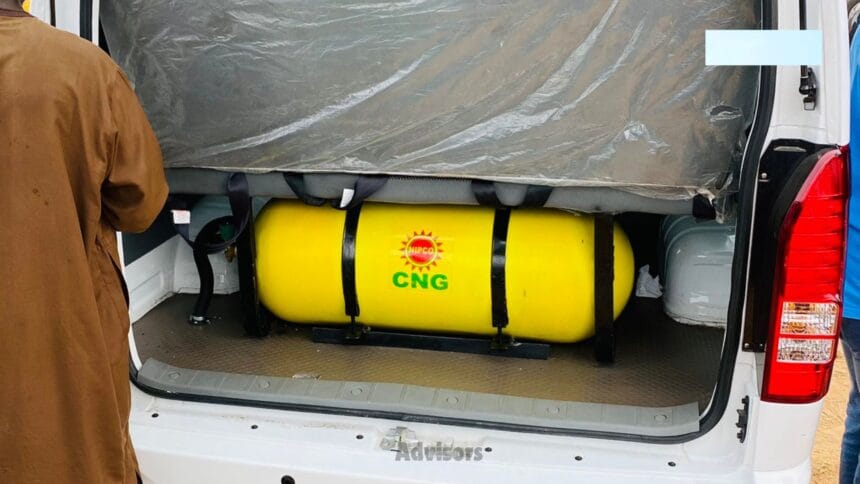… as profit margins decline in petroleum retail, PETROAN urges members to diversify with additional service offerings
Oredola Adeola
The Lagos State chapter of the Petroleum Products Retail Outlets Owners Association of Nigeria (PETROAN) convened a strategic meeting with key stakeholders to outline its objectives, address pressing challenges in the downstream petroleum industry, and explore new opportunities, including potential investments in Compressed Natural Gas (CNG) as a viable alternative fuel.
Mr. Joseph Ehimen, Lagos State Chairman, while addressing the stakeholders at the meeting held recently in Lagos, encouraged members to actively participate in the association’s activities, which he described as a collective means vital to addressing the challenges in the oil and gas downstream sector.
According to him, PETROAN is committed to the welfare of its members, promoting unity and stability in the petroleum products retail sector, as well as positively impacting the Petroleum Industry, particularly the downstream sector in Nigeria.
Ehimen further stressed that the association goes beyond the traditional petroleum bodies such as NUPENG and PENGASSAN.
The Chairman explained that one of the benefits of the PETROAN is its commitment to fostering familiarity among members and addressing the challenges faced in their dealings with government agencies like the Nigerian Midstream and Downstream Petroleum Regulatory Authority (NMDPRA) and the Department of State Services (DSS), Weights & Measures Division in the then Federal Ministry of Commerce & Industry.
He outlined plans to station PETROAN representatives at various depots to enhance the association’s influence and support for its members.
Mr. Ehimen noted that the Association is open to membership from various downstream players as it seeks to recruit new members, as a collective effort is vital for success.
Mr. Ismaila Izugie, Senior Special Adviser to Billy Gilly-Harry, President of PETROAN in his keynote address on the importance of taking the petroleum retail business seriously.
He encouraged members to promote PETROAN to other retail outlet owners and emphasized the need for compliance with government regulations to avoid any legal issues.
He also stressed the importance of maintaining high-quality petroleum products and prioritizing safety in all aspects of operations, including the safety of people, products, and the environment.
Izugie addressed the challenges associated with product acquisition, noting that the bottlenecks in the process contribute to higher costs.
He advised members to diversify their income streams by offering additional services, such as gas sales, to boost profitability.
He also highlighted several key areas that should not be overlooked, including transportation of products, maintenance of storage facilities, security, quality control, finance, documentation, and power supply.
He said, “The business scenery or landscape of the petroleum downstream sector is becoming increasingly uncertain and unpredictable.
“What makes this sector much more challenging is that many of the factors that directly affect profitable retail operations are beyond the direct control of the retail stations.
“Protecting the Consumer against dishonest retailers has always been a challenge.
“The role of technology in petroleum retailing needs to be explored in a way that embraces the interests of multiple stakeholders namely: Supplier, Hauler, Retailer, Consumer or end user with special consideration to Safety, Health, and Environment (SHE),” Izugie said.
He further emphasised that Petroleum Products Retail Outlet is no doubt the Final Point of Sales in the petroleum supply chain.
“This is the focal point with the end consumer and hence becomes the most important functional point in the entire Petroleum Product Supply Chain,” the PETRON Adviser to the National President said.
Mr. Alex Olugbenga, who is in charge of PETROAN Technical Officer, in his presentation, explained Compressed Natural Gas (CNG), emphasizing its growing importance as an alternative energy source.
According to him, CNG is a cleaner, more cost-effective alternative to traditional petrol and diesel, known for its environmental benefits and high efficiency.
He outlined the environmental and safety benefits of CNG, including its cleaner combustion process and the cost savings it offers in vehicle maintenance.
Mr. Olugbenga also discussed the bi-fuel functionality of CNG, allowing vehicles to switch between CNG and petrol.
However, he noted that diesel engines cannot be easily converted to CNG, a limitation that members and vehicle users should be aware of.
Olugbenga emphasized that CNG installations for diesel vehicles are costly and not advisable. He explained that CNG is stored in high-pressure tanks and can be used in petrol engines with a relatively affordable conversion kit.
CNG installation though expensive, members are advised to take advantage of the several government interventions through grants and subsidies available across various financial institutions.
He therefore praised NIPCO Oil and Gas for its significant contributions to CNG installations across major cities including Benin, Lagos, and Abuja.
Wrapping up his presentation he advised members to take advantage of the value chains of CNG in the oil and gas sector which according to him is vastly evolving.




